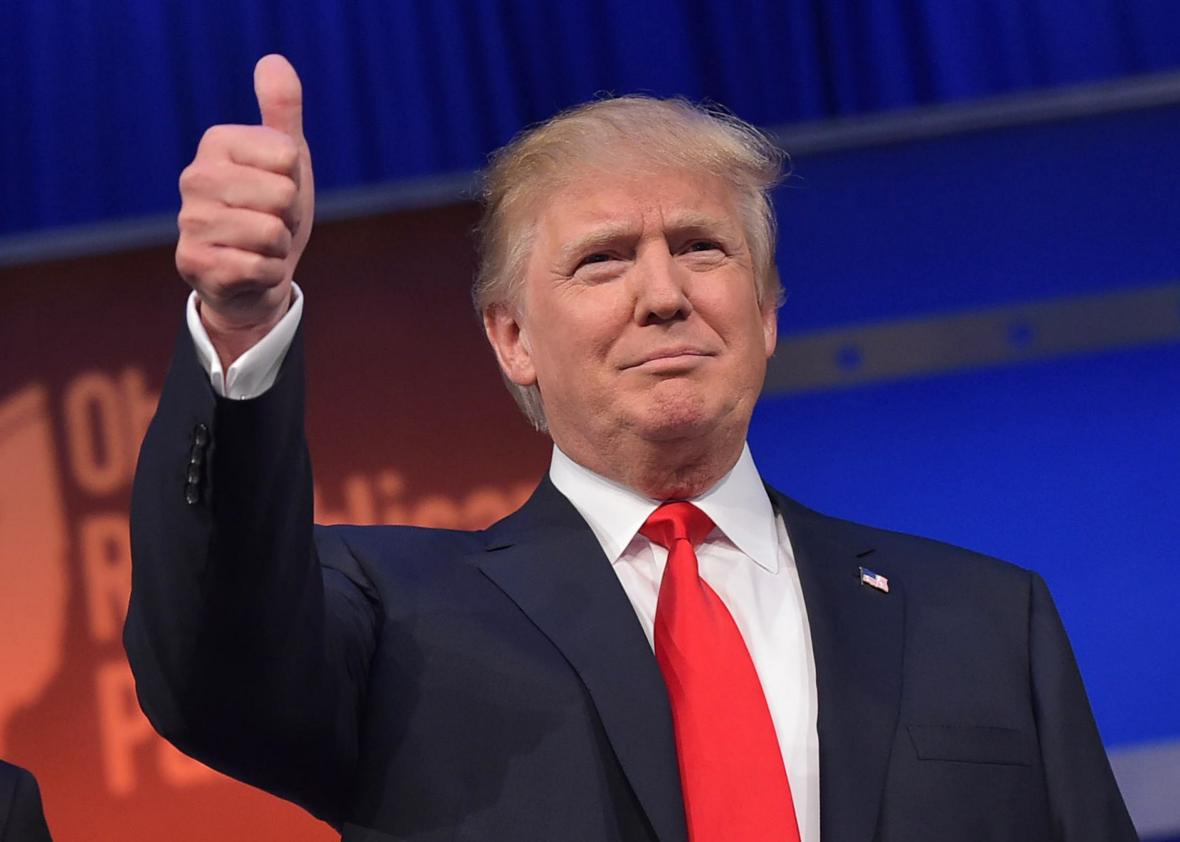Whether you are betting on the 2016 presidential election or not, it gives a brand new meaning to the “trump card”. Republican, Donald Trump’s, odds of moving into the White House improved considerably after his victory in Tuesday’s primary in New Hampshire; and punters are all over it like white on rice.
It’s not just the U.S. watching the campaign trail and laying down money, the United Kingdom has also taken a vested interest. According to Sportsbook, Betfair, based in the UK, members of the online site have already spent over a staggering $4.4 million predicting the outcome of the election.
The odds for Trump winning the presidency in the November election are 9/2 compared to the previous 7/1 odds that followed the recent Iowa caucuses where he placed second.
The percentages recently show 18%, up from 13, placing the real estate tycoon second to Democrat Hillary Clinton with even odds of winning the presidency at 50/50.
Hillary Clinton is losing momentum after being beat by Bernie Sanders, Vermont U.S. senator in New Hampshire. Clinton’s odds of winning are beginning to decline from 4/5, or a 56 percent chance at the White House, results right after Iowa caucuses.
In June of this year, Trump had 100/1 odds at Ladbrokes bookmaker, giving him only a 1 percent chance to win after announcing he was running.
“New Hampshire couldn’t have worked out much better for Trump,” said Matthew Shaddick, head of political odds at Ladbrokes. “This might be bad news for the Republican Party, but it’s not much better for us bookmakers, who are facing some huge payouts on the one-time 100/1 no-hoper.”
Republican U.S. senator, Marco Rubio from Florida, improved his chances for the nomination in the Iowa caucuses, however that has changed after the New Hampshire finish. Ladbrokes has given Rubio odds 8/1 with only a 11 percent chance at becoming president.
On the other hand, Ohio Governor John Kasich, is still the longshot at 33/1, with a 3 percent chance of making it to the White House.
Rajiv Sethi, a professor at Barnard College, published a study on political wagering markets and the patterns saying:
“I think that what’s different about this year is that you have people with strong but incompatible opinions. There are people who have felt, people who have publicly expressed the view that Trump couldn’t possibly be the nominee. They felt very strongly about that and very comfortable betting against that outcome. And really that view has started to change. The rise of Trump in the prediction markets has been driven by the breakdown of the narrative that he couldn’t possibly win.”
Reports suggest that it is the gamblers who are more accurate than the polls in predicting the victor in elections. According to Betfair, the majority of bettors were correct in predicting the winners of the 2004, 2008, and 2012 in the general elections once it was down to two candidates. The betting markets, overall, do not change as often as the polls do, which can vary and sway from one week to the next.
Exactly how do bettors generate the odds to begin with? Computers generate the overall average bets made on each candidate like traders in stocks. For example, let’s say Trump winning the GOP nomination costs 44 cents and he wins; owners of share get $1. This creates the odds at a 44 percent chance that Trump will of win the nomination.
While there are prediction markets in the U.S. to determine everything from the Oscar winners to who will be the next American Idol, political predictions have been banned.
Needless to say this Presidential Election of 2016 has certainly got the American public talking as well as those abroad. But then again, doesn’t every election spark debate, controversy and lots of hype? Trump was clearly the underdog from the get-go and has proven he is in it for the long hall and that anything is possible. It is still too early to know who will be the 45th President of the United States but until then it will be a campaign adventure that could go down in history.




